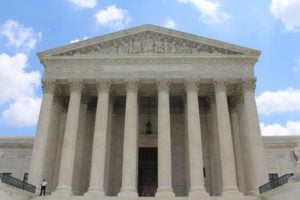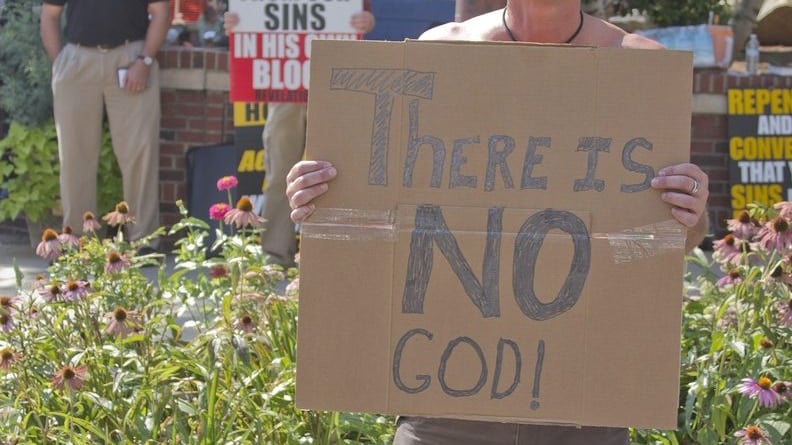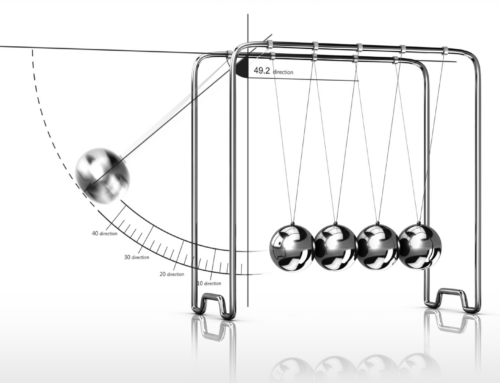It doesn’t take a deep search into social media to find a person who self identifies as an Atheist, but what IS an atheist? And what are the core tenets of the atheistic belief system?
The 15 Core Tenets of Orthodox Atheism!
First, let’s define a few terms.
Atheist: [from the Latin for “no god/s.”] Very simply, an atheist is an individual who chooses to affirm the statement, “There are no gods,” as true.
This needs to be distinguished from Agnostic, which comes from the Latin for “no knowledge.” This doesn’t mean they are completely ignorant, but their position is, “I do not have the information it takes to take a position.” (Also known as, “I don’t know,” or in Mythbusters terms, “Plausible.”)
While Agnosticism is an admission of ignorance, not actually a position, Atheism begins by asserting the truth-claim, “There are no gods.”
The following list is the series of beliefs which a consistent Atheist must hold. Of course they can choose to reject any of them, but that makes them a heretic, I suppose, or maybe just a hypocrite; but we can discuss that some other time. The point is that these tenets logically flow from one to the other.
We begin with the very Creed which defines the Atheist belief system:
-
There is no God or gods.
-
There is no supernatural including no spirits or afterlife.
No argument could be made AGAINST God/gods which would still allow for the Supernatural.
-
Thus, there is only materialism.
ALL that exists is the physical universe of time, space, matter, and energy.
-
Thus, there are no miracles or magic.
There is no one/nothing to CAUSE a miracle in a material universe. “Magic” is either merely natural science we don’t understand, or it is a miracle.
-
Thus, everything is predetermined yielding determinism.
ALL things and events are determined and controlled by the laws of physics and chemistry and all that follows from them.
5B. Thus, everything since the beginning of time has been predetermined by those natural laws. Everything has always been and must always be as it is because of those initial conditions and COULD NOT have been different.

-
There is no basis for any objective non-physical value.
Everything is merely the dance of atoms obeying the laws of physics and chemistry. There are inches and light years, Joules and foot pounds, but no values which are not physical quantities. Matter and energy doing what it must do according to physical laws cannot be “right” or “wrong”, nor more or less “important” in any real, objective sense.
-
Thus, there is NO free-will.
For a FREE choice cannot be a CAUSED choice, but the will of man is merely the result of his brain, which is matter, which is controlled and determined by the natural laws. There are no choices in our brains any more than there are choices in a row of falling dominoes or in the cogs of a machine.
7B. While some may appeal to Quantum uncertainty to allow for free will, this is a false hope. For uncertainty is merely our ignorance of all the causal determiners at the quantum level, not ACTUAL randomness. Even if it were, it is not our minds that
CHOOSE the random outcome of the quantum uncertainty on a macro level; but rather, our will is a result of that uncertainty. Once again, our choices would be CAUSED even if not
predictable. -
Thus, there can be NO objective right and wrong.
 If we cannot choose to think, feel, or do, then we cannot choose to do anything other than what we already DO. Our thoughts and actions are determined by chemistry and physics just as the shape of a rock is determined by chemistry and physics.
If we cannot choose to think, feel, or do, then we cannot choose to do anything other than what we already DO. Our thoughts and actions are determined by chemistry and physics just as the shape of a rock is determined by chemistry and physics.
8B. Additionally, with no transcendent moral law-giver (i.e. God), there can be no objective moral law by which to distinguish between right and wrong, even if we COULD choose. -
There is no justification for condemning any action as wrong or celebrating any as right.
Since there is no basis for non-physical values and no free will, then there can be no “good” or “right” actions, nor any “wrong” or “evil” ones. For example, murder is merely the interruption of the various chemical processes which we categorize as “life.” The victim’s desire to continue living is not based on a free choice, but is predetermined by natural law just as his hair color and height are. The same can be said for any act of justice, mercy, charity, love, kindness, etc. Those words are all essentially meaningless and reflect only the present emotional state of the speaker, not some fact about the real universe.
9B. Thus, there is no justification for civil law. We can no more blame a murderer for killing than we can blame a magnet for hanging on the refrigerator door. Punishing crime is like punishing leaves for being the wrong color. -
Life has no particular value.
Life is merely a chemical state, such as the burning of a campfire. Killing a human and pouring water on a camp fire are materially equal in the fact that they stop a chemical process from continuing. The fact that “life” is a more complex series of chemical processes does not give it some kind of transcendent value. After all, as already stated in No. 6, there are no non-physical values.
10B. Emotional appeals to morality are equally empty as emotions are merely a chemical state of the brain. The suffering of a victim or his loved ones is merely another chemical state which our brains are wired to dislike, just as thirst is a chemical state our bodies are wired to dislike. Even the dislike of pain and suffering or the dislike of grieving the death of another person are chemical brain states which are determined by our DNA and do not reflect some immaterial value. Love and compassion are also merely determined brain states. -
The SELF is an illusion.
Throughout a lifetime, a human’s cells are constantly replaced so that the ENTIRE collection of cells may be replaced several times over his life. Since a human is merely matter, then the man who dies is not the same man (collection and arrangement of matter) who was born, nor the same he was as a child, or a teen, or a middle aged man. He is not even a series of identical copies. Thus, “he” is a series of DIFFERENT collections of atoms spread out over time and what is called the “self” exists only for a moment.

-
The perception of a unified self is false.
The brain is composed of many parts which work both dependently and independently. The part which says of itself, “I” is no more the one brain state than a certain program which is running on a computer’s screen is the whole computer or all of its programs.
-
There is no basis for reason or logical thought.
If the brain is matter determined by natural laws, then it cannot CHOOSE to accept as true or reject as false any information which it processes. Something “known” or “believed” is merely a particular chemical brain state, predetermined by the laws of nature. Intellectual or emotional reaction to a fact or sensory input of any kind, including perceived sights and sounds, is likewise predetermined by natural laws; not by choosing to utilize methods of logic to discover truth, as choice itself is an illusion.
13B. Evolution can only create brains which are programmed to result in the survival of the individual, not the determining truth from falsity. Natural Selection can only act on survivability. This does not require the ability to be logical or rational, only that the formed beliefs and chosen actions result in survival.
13C. Furthermore, since the history of mankind is one of uninterrupted religion and belief in the spiritual and supernatural, we know that Evolution did not select brains which are driven entirely by the apprehension of truth. Rather evolution created brains which believe false premises and fail to process data logically and reasonably so as to come to true conclusions. Because the history of humans is one of consistent belief in religions and superstitions, we know the human brain cannot be trusted to discover truth, but can be trusted to embrace falsehoods. Even the logic or reason which is used to reject religions and the supernatural is done with those brains, which means the result of such arguments cannot be trusted to be reasonable or true. -
We cannot KNOW anything.
We can merely have particular arrangements of brain states which we call “knowledge” or “beliefs” of certain propositions.
-
Atheists don’t exist.
Humans are merely a constantly changing collection of matter just as any object in the universe. Their unified self is an illusion, and they cannot choose to believe atheism or to reject theism. One is an atheist, not because he has discovered it is true, or even because he has CHOSEN to believe it, but because the natural laws have caused his brain to be arranged in the manner which we call “Atheism,” just as his DNA has determined his hair color and height. Self is an illusion, free will is an illusion, and personhood is an illusion. Since a belief or knowledge is merely a predetermined chemical brain state which is not the result of logical thought, which the human brain cannot arguably be capable of doing; and since we began by defining Atheist as an individual person who chooses to affirm the statement “There are no gods” as true, then we must now conclude that Atheists don’t exist. So, it seems that I have just reasoned my way to the proposition, “If Atheism is true, Atheists do not exist.” Very sincerely, I did not actually expect this when I started. I’ve not been arguing TO this conclusion. I’ve just been following the logic where it led. And I’ve wound up here, proving that, if Atheism is true, Atheists do not exist.I can live with that. I never believed in them anyway.When you define Atheist to mean “Atheist” (instead of defining it to mean “Agnostic” as the kids tend to do online these days), then I think you ought to understand why I don’t believe that Atheists exist. Ironically, if they did exist, they should agree with me that they do not exist.
I think that fact alone says a lot.





